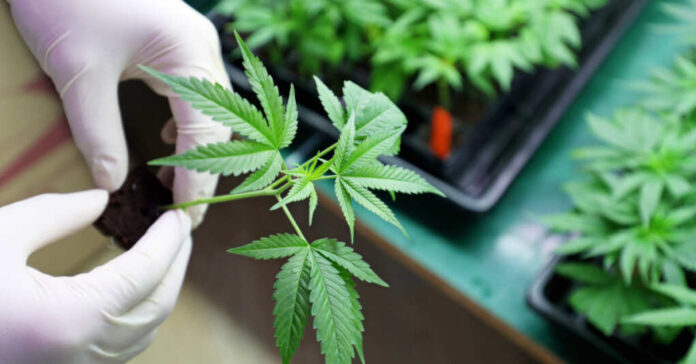
Despite many officials debating their theory, the American Medical Association (AMA) has shown that by refusing to legalize marijuana, states push their residents toward other substances. Specifically, this means the little-regulated and under-studied delta-8 THC variants. Appearing in the journal JAMA Network Open on December 13th, the study marks the first thorough research into little-studied cannabinoids like delta-8 THC, CBG, and CBN. Also uncovered were new numbers in CBD usage.
Compiled data from teams at the University of Michigan, University at Buffalo and Legacy Research Institute came from 1,169 adults and was gathered between June 22-26. Most notably, the researchers showed a 50% increase in admitted CBD consumption since 2019, with 21% reporting they used it within the previous 12 months. Given the availability of CBD enhanced lotions, balms, drinks, and snacks, it’s little surprise there was growth of this level.
Meanwhile, lesser-known and more newly discovered cannabinoids featured significant growth despite a smaller pool of people knowing about them. Combined, 25% of respondents reported using one or more of the substances in the last year. Delta-8 THC leads, with 12% using it, 5.2% trying CBG, and 4.4 testing out CBN.
The study proclaims, “Higher delta-8-THC use in states without medical or adult-use cannabis laws suggests that cannabis prohibition may unintentionally promote delta-8-THC use.” Underscoring that message, the study also found out that in states without medicinal or recreational use, marijuana was more than twice as likely to experiment with delta-8 THC.
Previous studies have yielded similar results. Ultimately, if people are given a choice between illegal marijuana and gray-area legal delta-8 THC, they will opt for the barely regulated option almost every time. Given the consequences of having possession of the federally illegal delta-9 THC marijuana, many are opting to risk their health with the unregulated market.
While the black market for marijuana still exists in legal states, it is driven down with responsible legislation and proper oversight. Products are inspected, tested, and verified before being put on shelves so consumers know they are getting a clean product. They can verify the strain and testing of what they are buying.
Given the unknown and the unregulated nature that corresponds with the federal hemp laws, these users are putting their health at risk, but at least they are legal. By not knowing for sure what they are getting, the risk of getting a poorly grown product is the least of their worries. Instead, they have to concern themselves with the possibility of pesticides, heavy metals, or other chemicals being all over their product.
State officials have been urging Congress to change the way products are regulated, with CBD-derived products having their own category; away from the intoxicating compounds. As multiple states seek to make delta-8 THC and other alternatives illegal, the evidence all points to one answer; make it legal.
With the current Legislation of the Farm Bill extended until next year, lawmakers won’t have much of an opportunity to enact legislation on it until then. Given that bubble of time (at a minimum) the market has grown exponentially as companies flood the market. Currently, the DEA has claimed that synthetically produced THC, which delta-8 THC largely is, would remain illegal. Yet their lack of enforcement as they cannot prove the synthesis has been troubling for many.
Previously seen marijuana alternatives like K2 and Spice caused massive problems across the globe. Frequently cited as “marijuana” in news reports, these are the substances responsible for people going off their rockers. Attacking cops, self-mutilation, frenzied talking, and harming small animals are just some of the negative responses recorded while under the influence of these man-made products.
Talk to the people who grow small-batch cannabis and what it means to them. Much like farmers of prize-winning fruits at the county fair, they put their heart and soul into these plants. A huge reward for these farmers is seeing a medicinal patient get the pain relief they need or the anxiety reduction they crave. They want people to have that “moment” that they experience. Even the large market growers want that for their clients if they are worth their salt.
All the synthetic marijuana growers want is the most product for the least amount of money and time invested. Let’s bring in the natural thing, the real marijuana, and enjoy the tax revenue. All while saving our kids from another man-made chemical to get addicted to.














